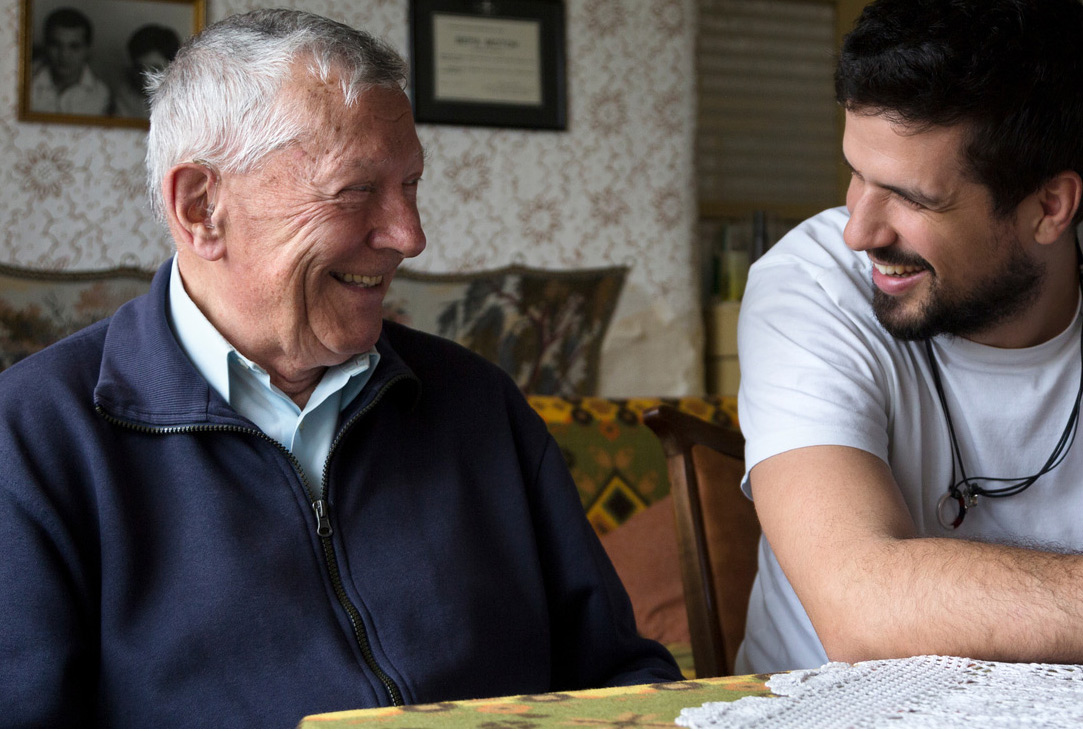Ask a “family scribe” to capture details of discussions with your cancer doctor.
When you’re diagnosed with cancer, it’s understandably a scary time. The initial visits with your oncologist (cancer doctor) can be especially intimidating, as you learn the details of your illness and start making decisions about treatment. It’s a good idea to bring a family member or close friend with you to doctor appointments, not only for moral support but also to take notes.
Appointing a “family scribe,” someone to write down important information during your doctor’s visits, is very helpful. Allison Schaffer, LCSW, manager of patient and family-centered care at Vanderbilt-Ingram Cancer Center, explains why:
Especially in the days and weeks right after a cancer diagnosis, you’re probably feeling many strong emotions – fear, stress, disbelief and more. In this state of mind, it can be difficult to calmly listen to new information, and to remember it later. Many people hear the word “cancer” and have trouble focusing on any more of the conversation.
Ask someone you trust — and who is calm — to be your scribe. That way you’ll have a record of the conversations later, in case you missed something or need to review it to understand it better. It also helps to compare your impression of the conversation with that person, or the notes, to gain perspective.
How to capture these medical conversations
Having handwritten notes is always a good idea. But other options include making audio or video recordings of the appointment. In a pinch, if no family members can accompany you in person, you may be able to use your iPhone’s Facetime feature to let someone participate from another location. That person can send you written notes later.
If you want to record the conversation, however, ask the doctor’s permission first.
“Some healthcare providers might be limited by their institutions’ policies” about recorded appointments, Schaffer said.
Work around hearing loss
If you have hearing loss — or if a family member does — ask your healthcare team for help in assuring that you get all the information. Again, an audio or video recording of the appointment, if possible, can help you review it again later to be sure you caught everything. Having the doctor or her staff give you written materials about illnesses, treatments, medications and more also helps.
Be clear about what you need
“It’s also important, if you’re going to have someone come along to the appointment, to talk about roles and expectations before the visit starts,” Schaffer said. Make sure your relative understands you want her to take notes, not just tag along for moral support. Also, let that person know what role to play during the conversation.
Warn your scribe about how well you usually handle these visits, especially if you tend to get upset but don’t want him to abandon taking notes to fuss over you. If this is the case, Schaffer suggests telling your scribe in advance: “I get really emotional during the visits. That’s my norm, so I want you to be there to take notes and ask questions and just let me have my reaction.”
Stay organized
Keep your information organized by using just one notebook or binder for all your medical appointments. If several people take turns being your scribe, ask them all to use the shared notebook. Or put their separate notes into a single binder. That way there’s one written family record of every appointment, a valuable help as treatment continues over time. There might be information you later want to review: medications, diet, appointments and more.
Gather contacts
Know how to reach the right person. The scribe should make sure to write down the name and contact information of the person on your medical team who will serve as your main point of contact. Is it the doctor? A nurse? A patient coordinator? Get that person’s name and how to reach him or her with questions or problems. What’s the direct phone number or email to use? For Vanderbilt patients, this will most likely be the My Health at Vanderbilt online portal.
Set expectations
Let the doctor know in advance when you have lots of questions.
“When you have a set amount of time — say 15 minutes, 20 minutes — to see a provider, they’re not always prepared to answer all those questions,” Schaffer said.
If you know you’ll need to have a long conversation at your next appointment, let the medical team know. Emailing questions in advance is especially helpful. The doctor may be able to answer them by email, saving time during your visit. Or she may need to set aside more time for a longer conversation when you meet.

